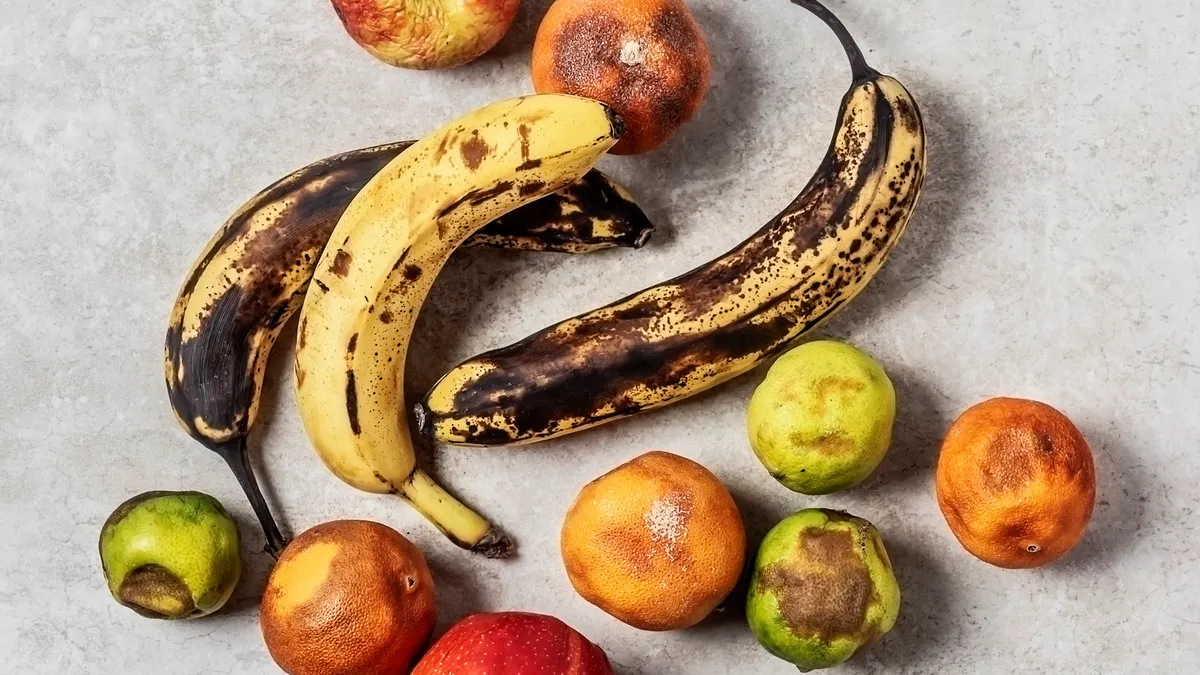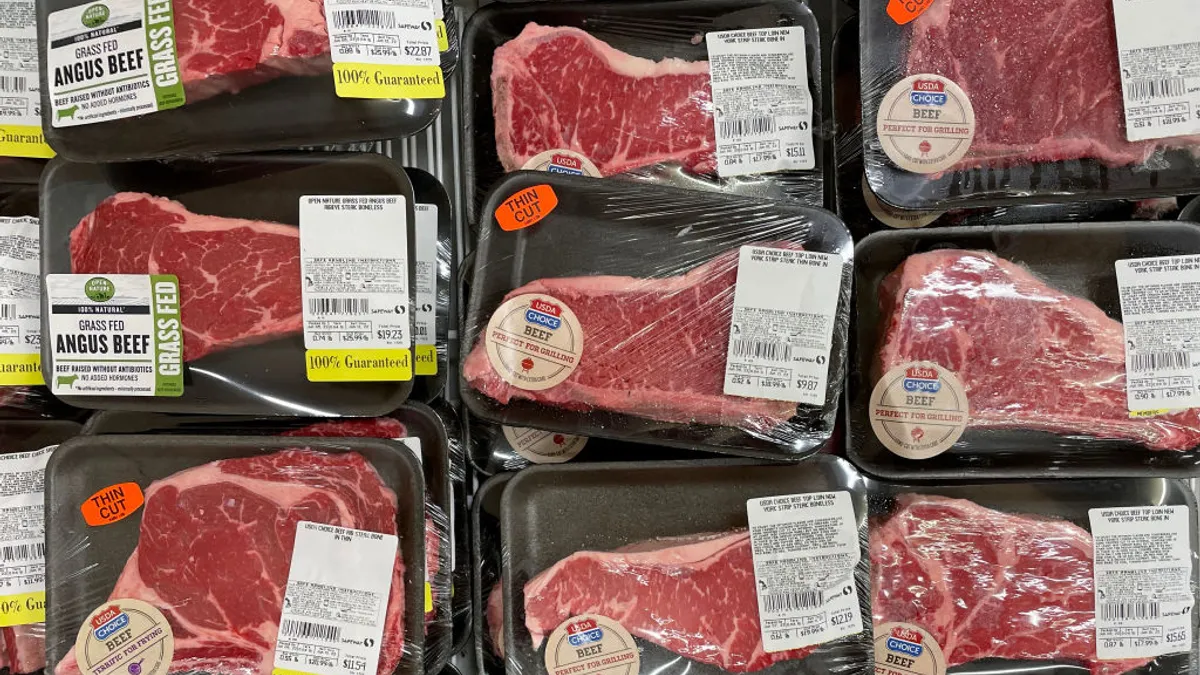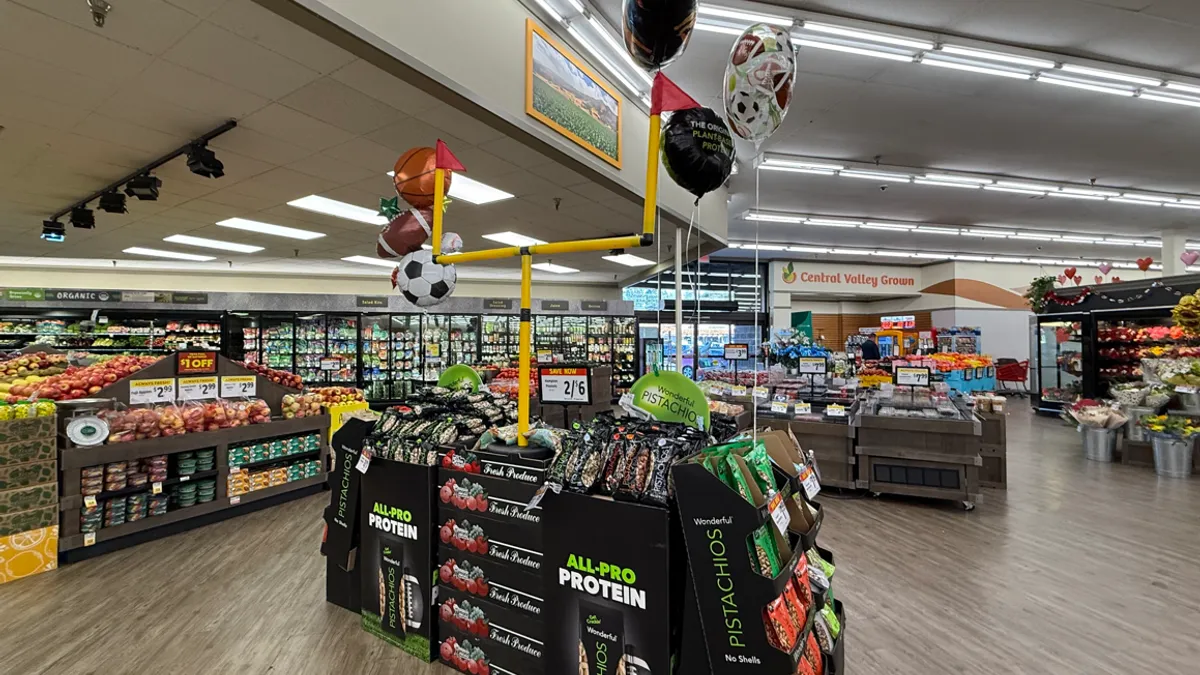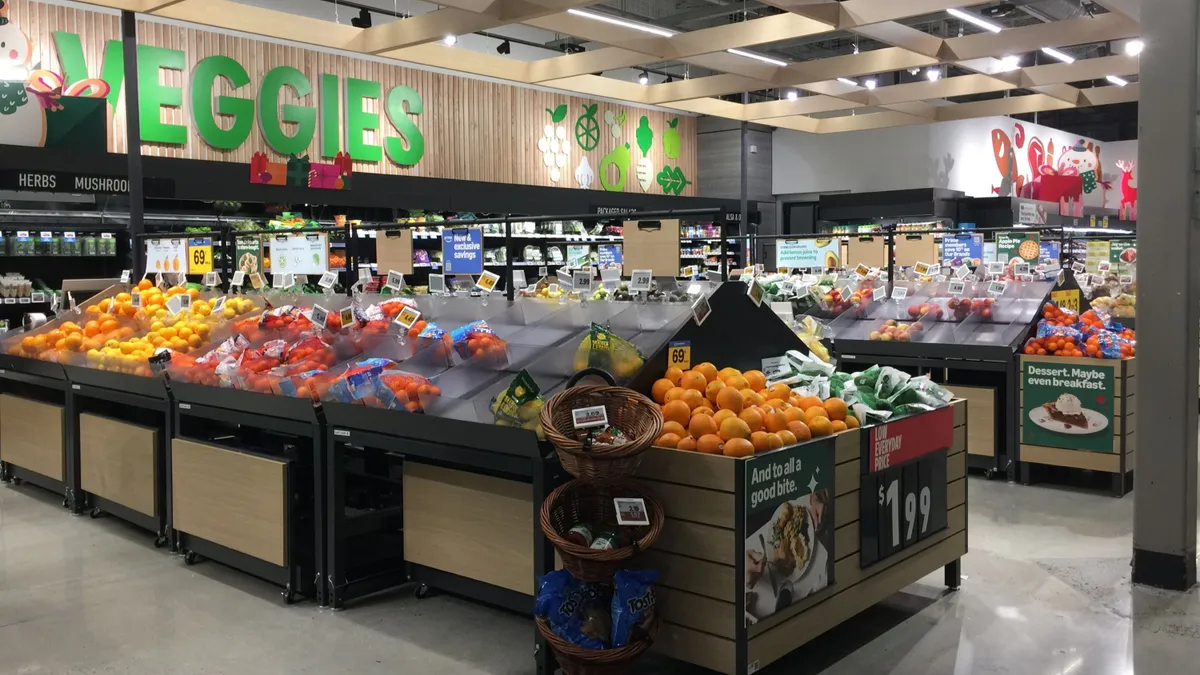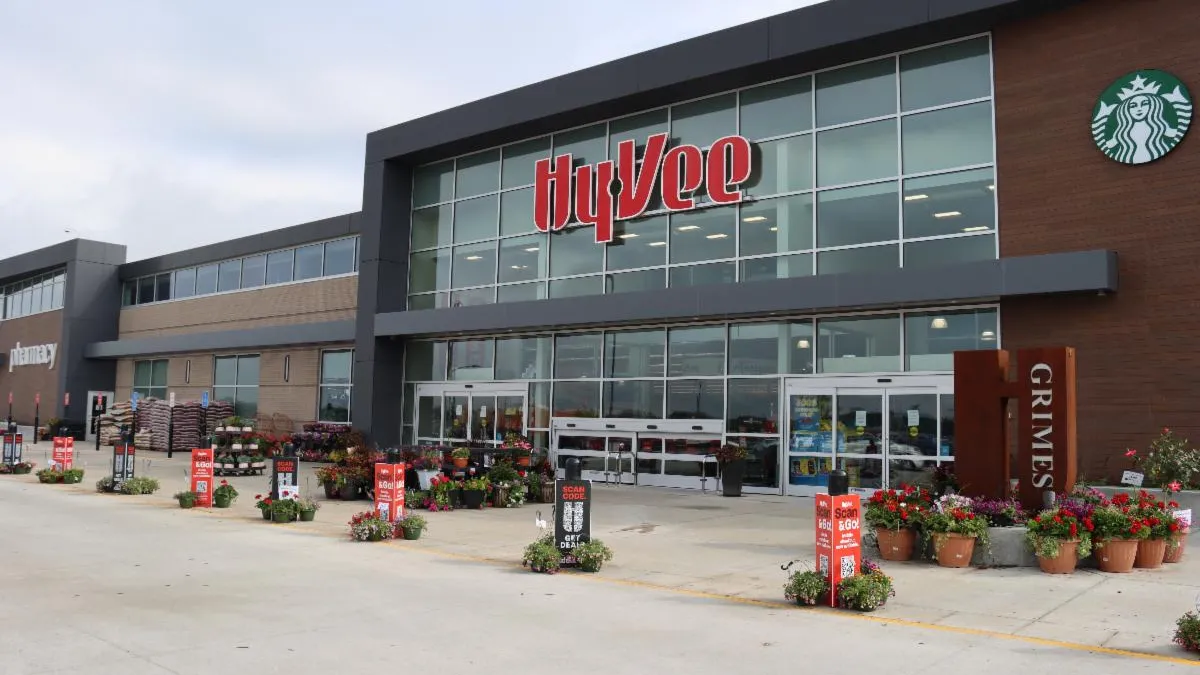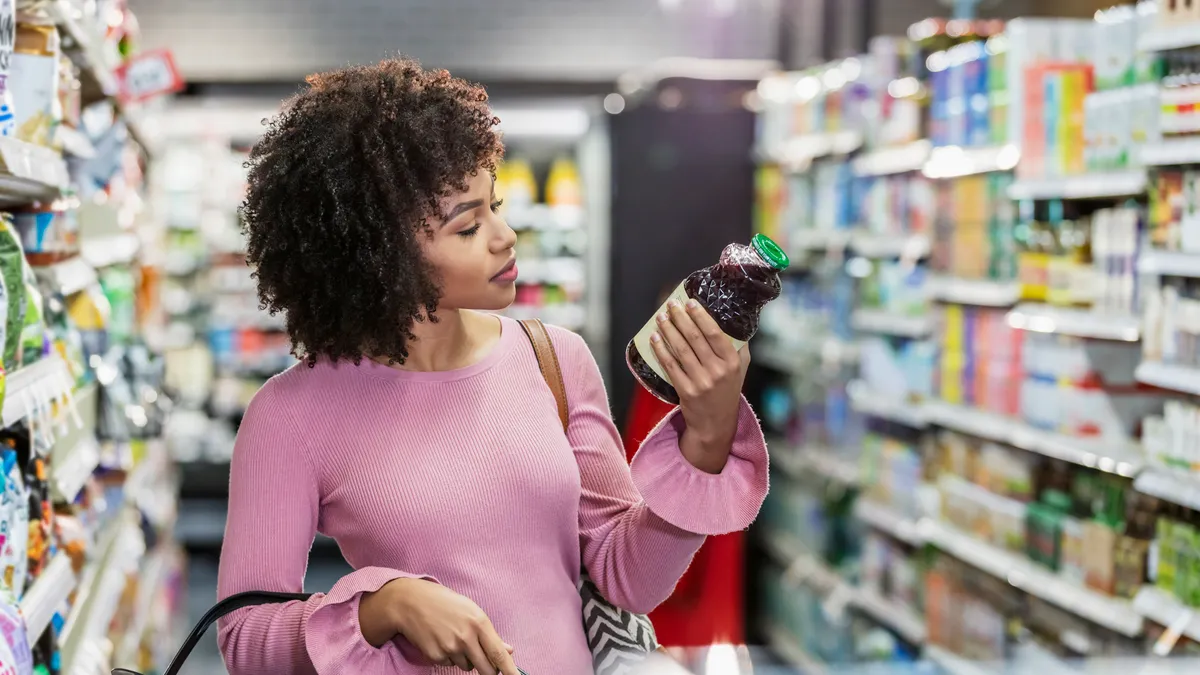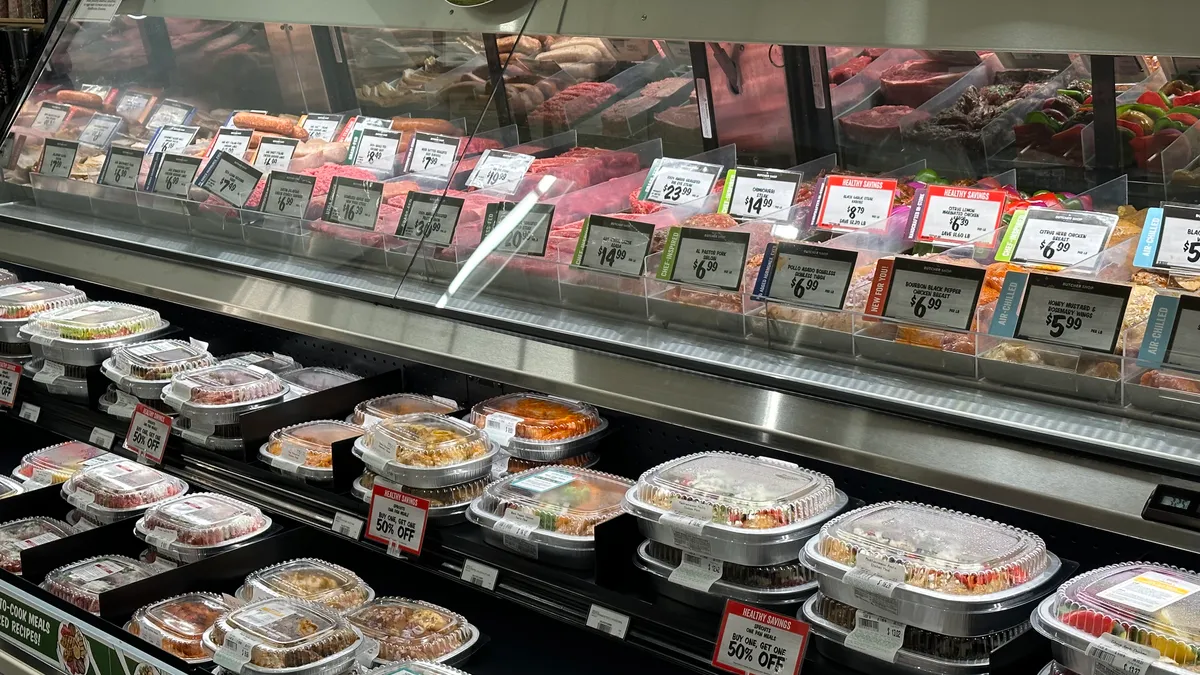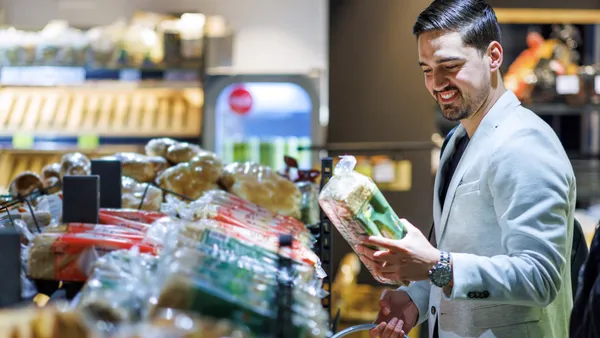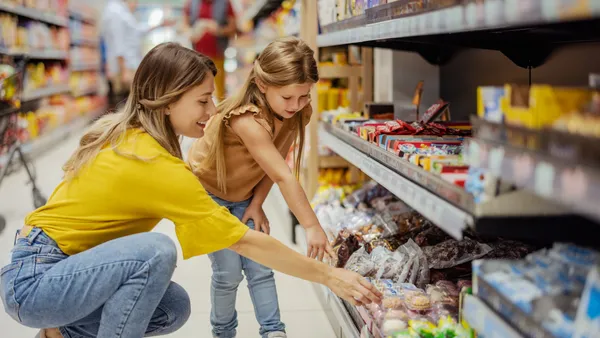Food waste prevention initiatives are becoming mainstream practices throughout the grocery industry. Since most grocers know they cannot take on this endeavor alone, partnerships are sparking between retailers and food banks, donation centers and third-party companies that find alternative uses for food otherwise wasted.
Increasingly, grocery chains are turning to technology companies that help them connect consumers to discounted food that would otherwise go to waste. Companies like Albertsons, Sprouts, Kroger and others have linked up with companies like Afresh, Flashfood and Too Good To Go to sell off soon-to-expire goods while also boosting their sustainability credentials.
But food waste initiatives like these aren’t only accessible to chain grocers. Independent operators, who have fewer resources compared to large players and whose stores may not generate enough waste collectively to qualify for pickups from local organizations, are also plugging in with food waste technology systems.
In the U.S., food waste is about 30-40% of the food supply and makes up the single largest material category in landfills, per U.S. Food and Drug Administration reports. Grocery stores produce around 16 billion pounds of waste annually, according to waste and recycling service provider RTS.
Selling surplus food by the bag full
Gourmet Garage, a four-location grocery store chain in New York City, faced a number of challenges kick-starting food waste initiatives, and it wasn’t until opening its newest location in the city’s West Village in April 2022 that the grocer discovered To Good To Go’s program, said Amanda Fischer, marketing, business development and outreach manager with Village Super Markets, which oversees the gourmet grocer.
Too Good To Go, a business to consumer marketplace for surplus food based in Denmark, provides food retail partners a platform to sell unsold excess food through its mobile app, primarily consisting of bakery goods and ready-to-eat meals that are still of edible quality but cannot be sold the next day. Through the app, customers are notified when stores have available bags and confirm they will pick up the food and meals that same day for one-third the retailer’s price, said Tyler Simmons, head of U.S. key accounts at Too Good To Go.
Too Good To Go has nearly 1,000 grocery partners in 13 active marketplaces across the U.S. and 45,000 grocery partners globally, Simmons said.
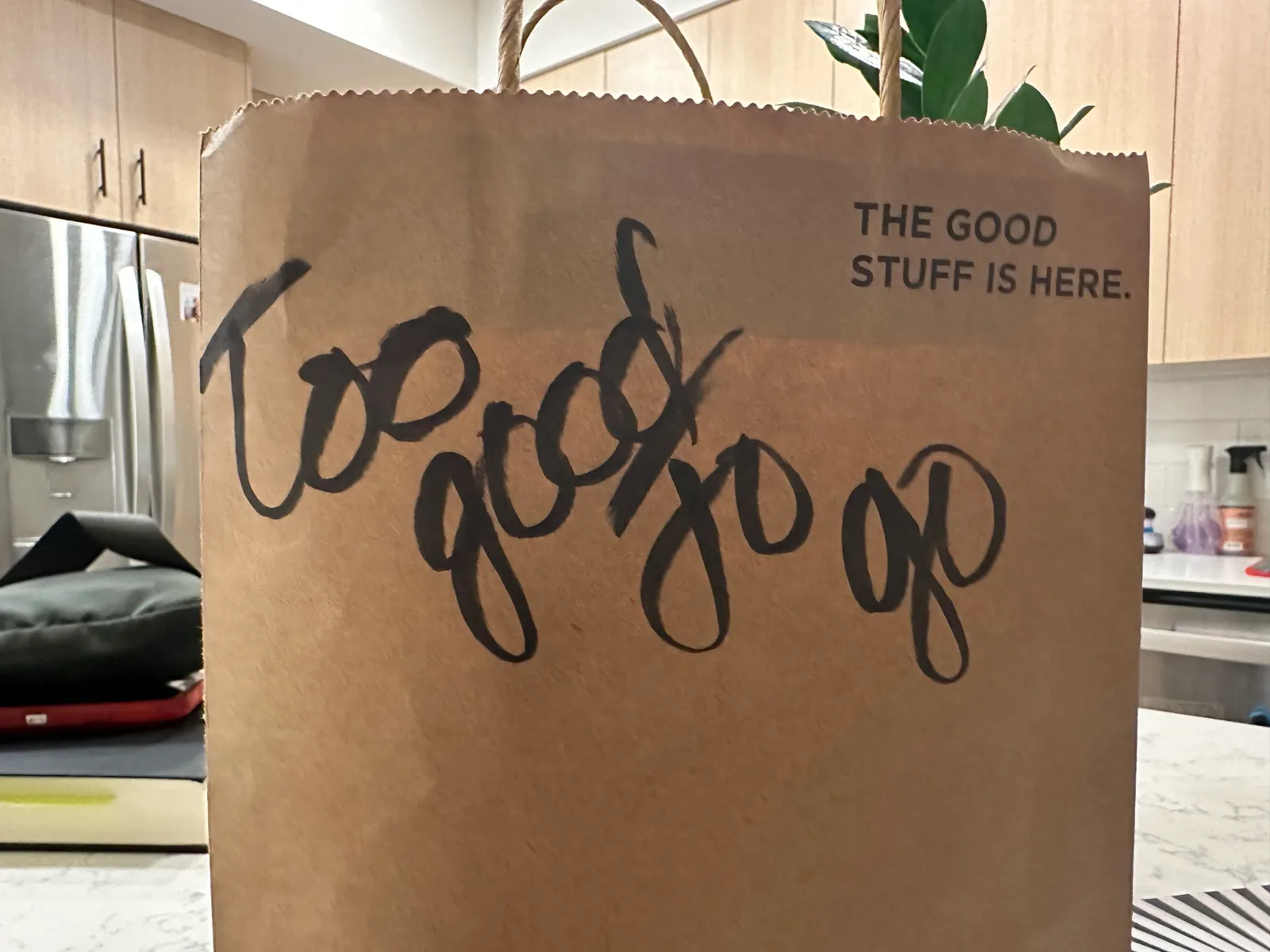
Too Good To Go’s model has served Gourmet Garage’s smaller footprint well, Fischer said, with stores able to offer on average 10 bags of food each day that would have otherwise been discarded. The bags consist of excess fresh food items and ready-to-eat meals, Fischer said. Employees, who each go through a short training program showing them how to bag and manage the excess food, take 15 to 20 minutes each morning to pack the bags.
Prior to Too Good To Go, Gourmet Garage had tried going through donation centers and food banks to combat food waste. And while fellow Village Super Market banner ShopRite was able to find success with these methods, Gourmet Garage could not always meet the demand, oftentimes making pickups sporadic and inconsistent, Fischer said.
“[Food rescue organizations] have minimums they need to fulfill. So they are not going to schedule a pickup if it’s not worth the time and effort as they travel around New York City,” Fischer said. “Some of our other [Village Super Market] stores might have enough for a big partner like City Harvest to provide pickups but that just wasn’t the case at Gourmet Garage.”
In late 2022, after a successful pilot run of the program at its West Village store, Gourmet Garage introduced Too Good To Go’s program at its other locations in Tribeca, Soho and Lincoln Center on 66th Street, Fischer said. The program has helped introduce new customers to Gourmet Garage’s stores, she noted.
“[The Too Good To Go partnership] really does allow us to have that consistency of we always know that we have an outlet for the food instead of the garbage,” Fischer said.
Consistency is [the missing] key
Like many grocery chains, Gourmet Garage needed a third-party company to successfully apply food waste initiatives but struggled with consistency from partners often used by larger grocers.
Smaller grocers often lack resources grocery chains with larger footprints can secure, Fischer said. But third-party companies are beginning to step in to bring grocers the technology needed to track the amount of food waste accumulated and how to best reduce it.
Divert, a food waste prevention company, is another example of these efforts being brought to grocers. The company collects food waste from nearly 5,400 U.S. retail stores and bring it to one of its 10 facilities to be sustainably broken down through aerobic digestion, according to CEO and Co-Founder Ryan Begin. In addition, Divert’s Internet of things (IoT) technology provides grocers with a waste data tracker system to track their food waste output, Begin said.
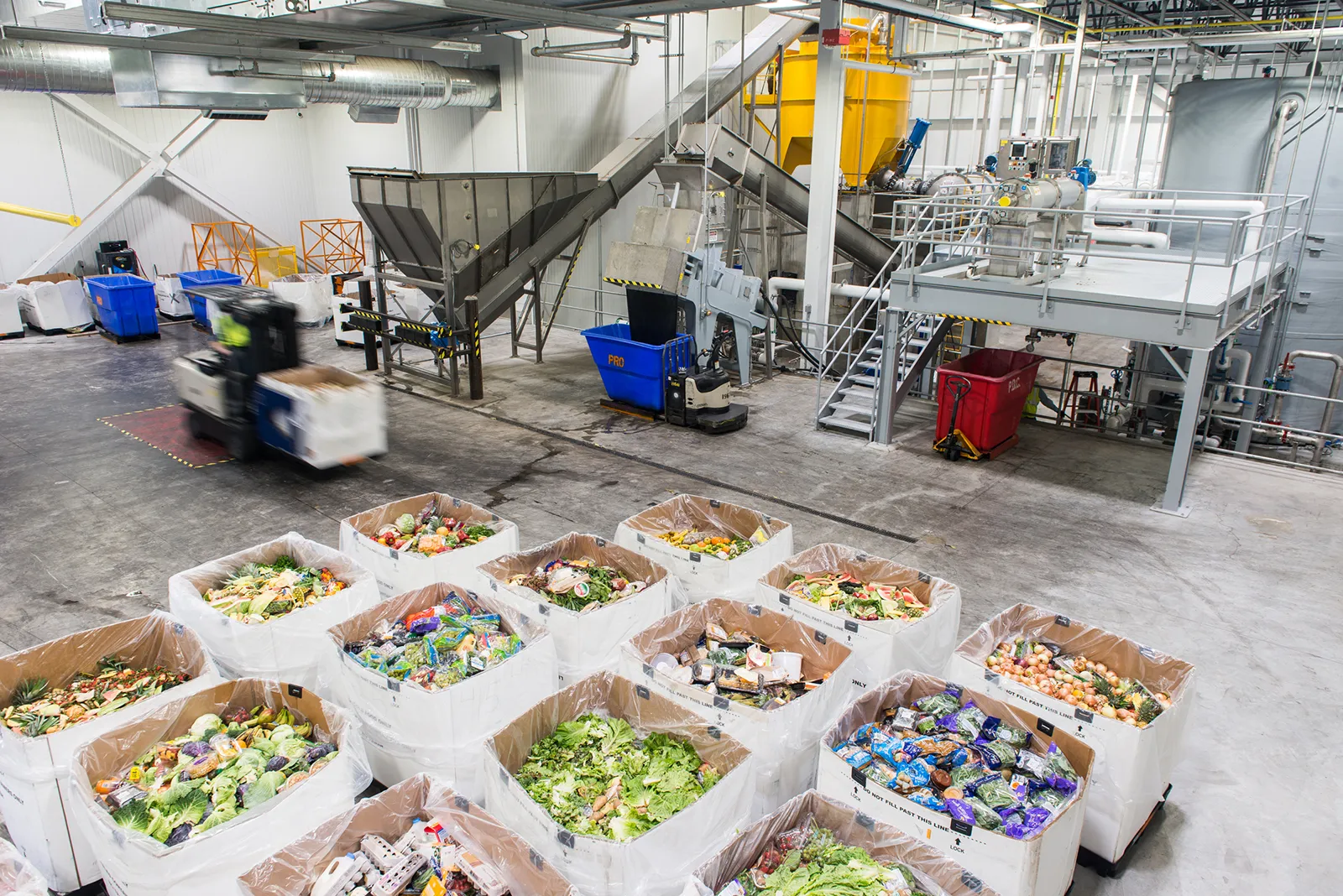
“What you want for these programs to work is it has to be simple,” Begin said. “You have to make it very simple for your partners. And then we also have to help them understand how they are going to reach their objectives as a business producing wasted food.”
Divert has implemented its IoT technology for larger grocers, like The Giant Company, as well as smaller grocery chains. For smaller, independent grocers, Begin noted that it may not be to their advantage to apply this technology to their stores because facility data is collected on a regional scale, and may not account for a smaller grocer’s footprint.
As the practice becomes more widespread, however, and more facilities are introduced to different regions of the U.S., this can change, Begin said.
“No single retailer has the scale to solve this problem on their own,” Begin said. “Every [grocery partner] has their own wants and needs, but the baseline solution is universal and they understand that.”



